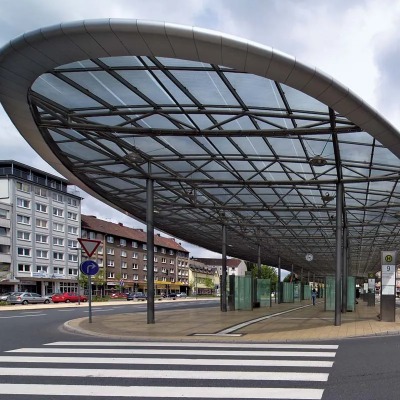Bank Pembangunan Malaysia And Hartasuma Ropeways: Partnership For The New Penang Hill Cable Car Project,

Hartasuma is proud to announce the successful signing of a RM367.2 million (79 millin USD) financing agreement with Bank Pembangunan Malaysia Berhad (BPMB) for the Penang Hill Cable Car project.
The ceremony, witnessed by YAB Tuan Chow Kon Yeow, Chief Minister of Penang, marks a major step forward in realising this landmark initiative that will enhance sustainable access to Penang Hill while preserving its ecological integrity.
Notably, this financing marks BPMB’s first blended finance initiative under the National Energy Transition Facility (NETF) — a strategic government fund established to catalyse Malaysia’s shift to a low-carbon, climate-resilient economy.
The Penang Hill Cable Car project aligns with NETF’s objectives by:
• Reducing reliance on carbon-heavy transport options;
• Promoting low-emission, electrified mobility solutions;
• Supporting sustainable tourism infrastructure;
• Preserving environmentally sensitive zones through thoughtful engineering.
Speaking at the ceremony, Executive Director, Tan Sri Ravindran Menon, reaffirmed Hartasuma’s commitment to delivering a world-class, energy-efficient cable car system that complements the existing funicular railway — not replaces it — and supports Penang’s long-term vision for green mobility and inclusive economic growth.
With nearly 500 job opportunities expected during construction and operation, the project is a model of how infrastructure, climate responsibility, and tourism can be integrated meaningfully. Completion is targeted for early 2027.
A cable car system complementing the existing Penang Hill Railway was first announced by then Malaysian Minister of Finance Lim Guan Eng in 2019.The funicular railway had recorded a ridership of 1.74 million throughout 2018 and Penang officials were seeking an alternative mode of transportation to reduce the overdependence on the railway. The federal government allocated RM100 million for the cable car project in the 2020 budget, with additional costs to be borne by the Penang state government. The Penang Rifle Club, situated adjacent to the Penang Botanic Gardens, was selected as the ground station over other areas such as Teluk Bahang.
A political crisis in 2020 led to the removal of the Pakatan Harapan-led federal government by the right-wing Perikatan Nasional. As a result, federal allocations promised for the cable car project were cancelled. Despite this, in 2021, the state's Chief Minister Chow Kon Yeow announced a request for proposal for the project, citing "tremendous" public support. The project was to be awarded through a public–private partnership framework, with the selected developer given a 30-year concession to design, finance, build, operate and transfer the system. Six proposals were received by the Penang Hill Corporation (PHC) and in 2022, Malaysian firm Hartasuma Sdn Bhd was awarded the project.
As the cable car project is to be undertaken on slopes between 25 and 35 degrees, federal government oversight was required, involving traffic impact (TIA) and environmental impact (EIA) assessments.[8][9] To build and operate cable car systems at ecologically sensitive areas, the PHC sought technical expertise from Switzerland and Austria; Penang Hill had been inscribed as a UNESCO Biosphere Reserve in 2021. In 2023, Chief Minister Chow announced that the cable car infrastructure would be provided by Doppelmayr/Garaventa Group.
The cable car project received approval from federal government environmental regulators in 2024. Prime Minister Anwar Ibrahim presided over the groundbreaking ceremony in June that year. The cable car system is expected to be completed by the third quarter of 2026.
The cable car system is designed to cater to a capacity of 1,000 passengers per hour per direction, comprising 50 eight-seater carriages that travel at a speed of 6 m/s (20 ft/s). Citing extensive experience in ropeway engineering within UNESCO-designated sites, Doppelmayr/Garaventa Group has been selected to provide the cable car infrastructure. The line will comprise three stations along its length – Taman, Geling Belokan and Bukit stations.
The project will include the construction of 15 towers – five in the forests, and the other 10 near the upper and ground stations. The foundations are to be built using the hand-dug caisson method to reduce on-site clearing. The PHC stated that only 50 trees would be affected by the construction, primarily African tulip, royal palm and oil palm surrounding the lower end of the route.
Hartasuma technology partner is Doppelmayr Group.














